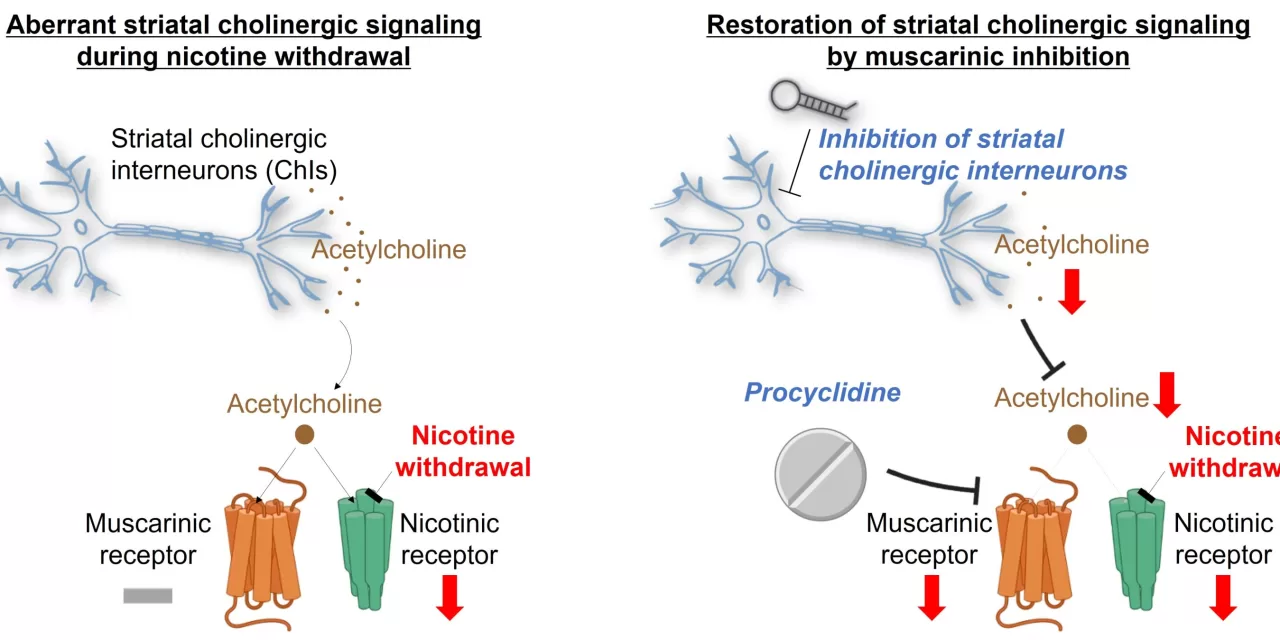According to the World Health Organization (WHO), over 22% of the global population smokes, with more than 9 million smoking-related deaths reported annually. To combat this public health crisis, researchers are continuously exploring new treatment options to alleviate nicotine withdrawal symptoms and improve smoking cessation success rates.
Discovery of a Novel Brain Mechanism
A research team led by Dr. Heh-In Im at the Center for Brain Disorders of the Korea Institute of Science and Technology (KIST) has made a significant breakthrough in understanding nicotine withdrawal. Their study, published in Advanced Science, identified a previously unknown brain region and neural mechanism that regulate nicotine withdrawal symptoms.
The researchers discovered that specific areas of the brain become hyperactive during smoking cessation, leading to withdrawal symptoms such as tremors and reduced activity. These symptoms pose a major challenge for individuals trying to quit smoking, often causing relapse. Understanding the internal processes of nicotine withdrawal is crucial for developing effective treatments.
Potential of Parkinson’s Disease Drug for Nicotine Withdrawal
The study focused on the role of striatal cholinergic interneurons in nicotine withdrawal. Using animal models, the researchers selectively inhibited sodium channel expression in these neurons, effectively reducing their activity. This intervention significantly alleviated tremors, a primary withdrawal symptom.
By leveraging advanced multi-electrode array technology, the team confirmed that suppressing cholinergic interneurons prevented abnormal neural activity. Additionally, microdialysis experiments demonstrated that inhibiting these neurons restored dopamine levels in the striatum, which had declined by more than 20% during withdrawal.
These findings led researchers to explore the potential use of Procyclidine, an FDA-approved Parkinson’s disease drug, for nicotine withdrawal treatment. Procyclidine mimics the inhibition of cholinergic interneurons, making it a promising candidate for managing withdrawal symptoms.
Administering a single low dose of Procyclidine to mice before inducing nicotine withdrawal reduced tremors by over 50%. This suggests that repurposing an existing, safe medication could provide an effective solution for alleviating nicotine withdrawal symptoms and increasing smoking cessation success rates.
Implications for Smoking Cessation Therapies
Dr. Im emphasized the potential impact of these findings, stating, “This study presents new possibilities for smoking cessation treatment by mitigating the disruptions caused by withdrawal symptoms. It provides an additional treatment option alongside Bupropion and Varenicline. Moving forward, we aim to deepen our understanding of addiction mechanisms, including nicotine, and develop effective therapies.”
By repurposing Procyclidine, researchers could significantly shorten the clinical trial process, making new treatments more accessible and cost-effective. This breakthrough offers hope for millions of smokers seeking to quit and reduce their risk of smoking-related diseases.
Conclusion and Future Research
As smoking remains a leading cause of preventable death worldwide, the need for effective cessation therapies is more urgent than ever. This study marks an important step toward understanding the neural mechanisms of nicotine withdrawal and developing new, evidence-based treatment options.
Further research and clinical trials will be necessary to validate these findings in human subjects. If successful, Procyclidine could soon be integrated into smoking cessation programs, offering a novel and effective strategy for overcoming nicotine addiction.
Disclaimer: This article is for informational purposes only and should not be considered medical advice. Individuals seeking to quit smoking should consult healthcare professionals before starting any new treatment. While the research findings are promising, further studies and regulatory approvals are required before Procyclidine can be widely recommended for nicotine withdrawal.











